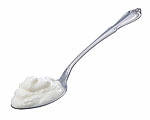 Probiotics are live microorganisms that exert a beneficial effect in your intestines. In this part of my ongoing series, I look at one of probiotics’ best treatment possibilities. It is for ulcerative colitis.
Probiotics are live microorganisms that exert a beneficial effect in your intestines. In this part of my ongoing series, I look at one of probiotics’ best treatment possibilities. It is for ulcerative colitis.
Along with environmental and genetic factors, bacteria in your intestines play a major role in conditions that are collectively known as “inflammatory bowel disease.” No condition comes bigger in this regard than ulcerative colitis. Half a million Americans have this disease, which causes inflammation in the digestive tract. It can be painful and debilitating, and affects the inner lining of the colon and rectum. Without a cure, the objective is to reduce symptoms.
For years, antibiotics have been used to blindly treat colitis without a clear picture of which bacteria are targeted. Using probiotics is logical since these bacteria can reduce inflammation in the gut. There is no shortage of studies here either, so here is a look at some of the promising ones in the last few years.
— 2003: For one year, researchers looked at 21 patients. The treatment of probiotic-instilled milk prevented relapse and maintained remission of symptoms.
— 2003: in 40 patients with inflammation after surgery for colitis, a concentrated probiotic formula called “VSL#3” prevented symptoms and improved quality of life.
— 2004: In 30 patients, a probiotics treatment called a “bifid triple viable capsule” prevented flare-ups in just two months.
— 2004: In nearly 330 patients, probiotics called “Escherichia coli Nissle 1917” proved as effective as mainstream drug mesalazine.
— 2004: In 90 patients, low-dose drugs complemented with VSL#3 probiotics led to faster remission.
— 2004: In 20 patients, probiotics-rich milk was more effective than placebo at reducing colitis symptoms.
— 2005: In 18 patients, “Bifidobacterium longum” plus a prebiotic led to better outcome than placebo did.
— 2006: In 190 patients, the renowned probiotic “Lactobacillus” was more effective than a drug in maintaining remissions.
My take on all this: probiotics are promising for the treatment of ulcerative colitis and in keeping the condition in remission. Probiotics have been proven as effective as standard therapy. But, as usual, much larger studies are needed to confirm this.
For reasons that aren’t exactly known, probiotics haven’t proven effective for another major inflammatory bowel disease, Crohn’s disease. This one is often confused with ulcerative colitis because the symptoms are similar. The main difference is that, while colitis only hits the lining of the colon or rectum, Crohn’s disease is not limited to any part of the digestive tract. It can strike anywhere.
In recent years, several studies have shown that probiotics — particularly “Lactobacillus” varieties — is not effective in reducing the symptoms of Crohn’s disease. The only recent study to find quality benefits was in 2000. In 32 patients, “S. boulardii” probiotics significantly reduced relapse when combined with the drug mesalamine; more so than the drug alone. In any event, if you are considering probiotics for help in treating an inflammatory bowel disease, it will only be worth it if you have ulcerative colitis.
Read the first four parts of this series here:
The Power of Probiotics
Your Best Defense Against the “D” Word
Fight Off One of the Worst Infections with This
Curing an Irritable Bowel…with These Friendly Bacteria
